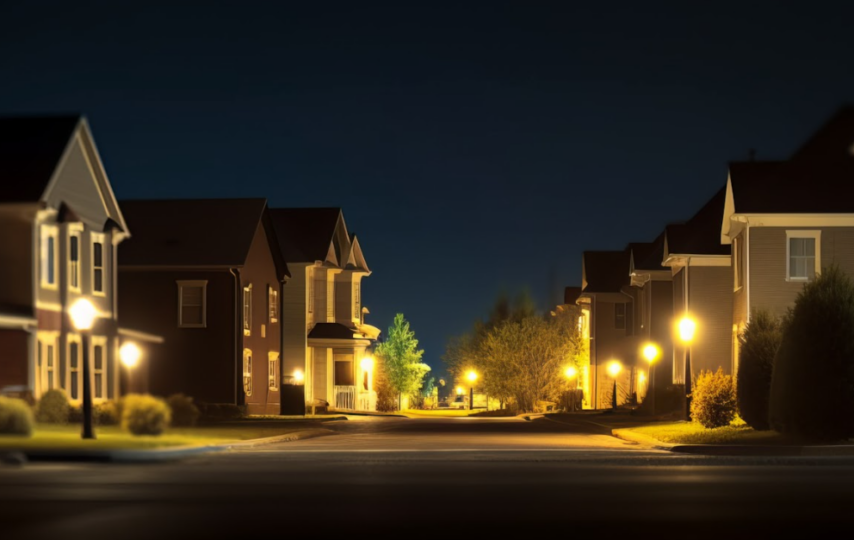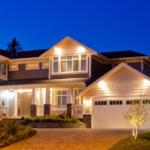Choosing the perfect neighborhood isn’t a decision to be taken lightly. It’s more than just a piece of land; it’s about joining a community, finding comfort, convenience, and maybe even raising a family. But how do you determine the perfect neighborhood for your new home?
To ease this daunting process, here are some key factors to consider in your search for the perfect neighborhood:

- Talk To Residents And Real Estate Agents
Talking to residents can provide firsthand accounts of living in the neighborhood. They can provide insights into the community spirit and management of issues like noise or parking.
On the other hand, having a chat with real estate agents, like those from companies similar to Chatburn Living, can be highly beneficial. They possess a wealth of knowledge about the local market. They’re aware of neighborhood trends and potential red flags.
Though it requires some effort, conversing with these individuals can provide you with a clear picture of what life in the neighborhood would be like. This can save you time and help you make a more informed choice.
- Identify Your Lifestyle Needs
As a first-time homebuyer, determining the perfect neighborhood involves a keen understanding of your lifestyle needs. Everyone’s requirements are unique, and what works for one person may not work for another. Here are some aspects to consider:
- Family Status: If you’re raising a family, you’ll want a family-friendly neighborhood with parks, good schools, and other families. Conversely, if you’re single or a couple without children, you may prefer an area with thriving nightlife and numerous social opportunities.
- Leisure Activities: What do you like to do in your spare time? If you’re an outdoors person, you’ll appreciate a neighborhood close to parks, hiking trails, or beaches. On the other hand, if you’re into arts and culture, you might enjoy living near museums, theaters, and art galleries.
- Pets: If you have pets, you’ll want a pet-friendly neighborhood. Look for amenities such as dog parks, pet stores, and vets in the vicinity.
These considerations will help shape the vision of your ideal neighborhood. Such can also guide you in your search for a perfect new home that aligns with your lifestyle and needs.
- Consider Proximity To Essentials
Convenience matters. How close is the nearest grocery store? What about a hospital or a good school? Assessing the proximity to essential services is crucial.
Some folks love having these services within walking distance, while others are okay with a short drive. It’s about finding the balance that suits you.
- Look At Public Transportation And Commuting Options
Public transportation and traffic conditions are significant for frequent commuters. Is there a reliable public transit system? How’s the rush hour traffic?
Moreover, review the reliability of the local transit routes. Check if they’re on time and whether they cover extensive areas. If you’re a car owner, inspect the parking availability in your prospective neighborhood. If street parking is a problem for you, look for other neighborhoods without parking issues.
Your commute time can significantly impact your quality of life. Consider your daily commute before finalizing your decision.
- Examine The Neighborhood’s Character
You can tell a lot about a neighborhood by its character. Are the homes well-kept? Do people seem friendly? Are there amenities like parks, gyms, or cafes?
If possible, visit the neighborhood at different times of the day and week. This helps you experience the local vibe and activity levels firsthand.
- Check For Signs Of A Strong Community
A neighborhood with a strong community feel can make a new place feel like home. Look for signs such as:
- Regular Community Events: Activities such as neighborhood cleanups and block parties indicate that residents care about their environment and engage with one another.
- Well-Kept Public Spaces: Community centers, parks, or playgrounds often signal a neighborhood that values the quality of public involvement and life.
- Friendly Interactions Between Neighbors: Casual chats, wave-offs, and general camaraderie are good indicators of a close-knit community.
A community that takes pride in its neighborhood usually means it’s a great place to live. Additionally, neighborhoods with active community associations often have additional resources and can help new residents feel welcome and involved.
- Consider Noise Levels And Privacy
Peace and quiet are often high on the list of desirable neighborhood traits. Assess the neighborhood’s noise levels at different times when buying a home.
Are there noisy highways or airports nearby? What about nightlife venues or busy restaurants? If privacy is important to you, check how closely homes are spaced and if there’s ample greenery for seclusion.
Conclusion
Finding the perfect neighborhood is a personal and complex task that requires thorough research and careful thought. Take your time and explore the various neighborhoods you prefer. By considering the factors mentioned above, you can find a neighborhood that suits your lifestyle, meets your needs, and feels like home.








